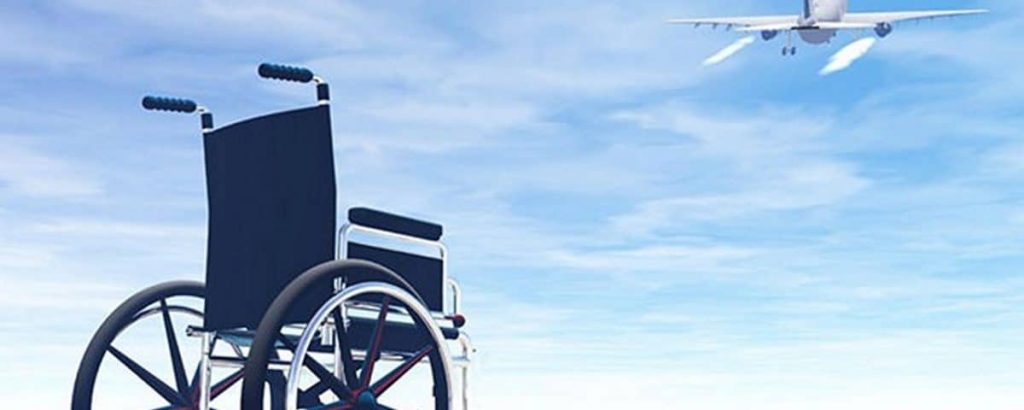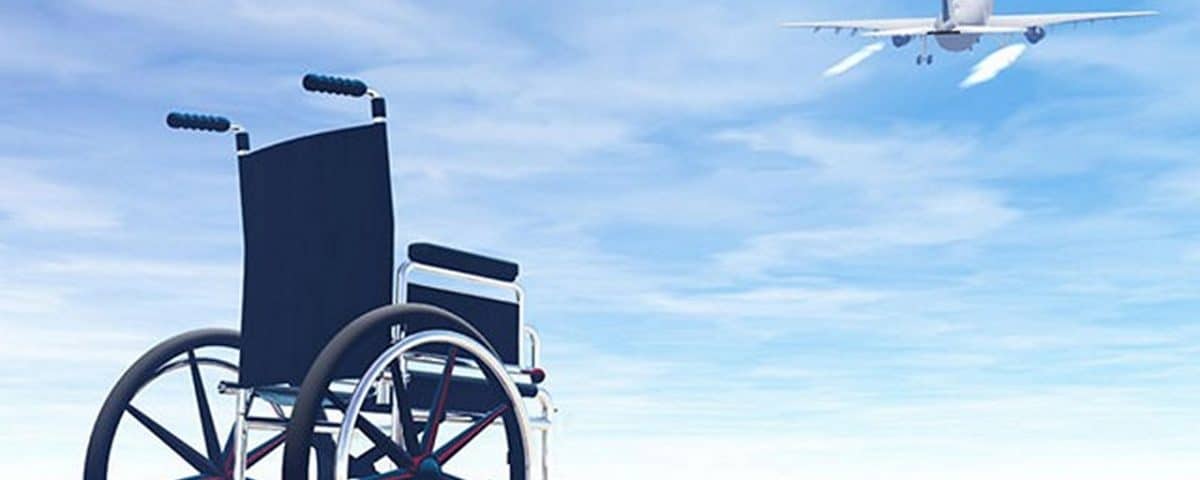
Summer is fast approaching in the Northern Hemisphere, meaning it’s once again time to plan holiday travel. But for people with disabilities, this isn’t as easy. From the moment we arrive at the airport, we often face many challenges. Four in ten travellers with disabilities have had their mobility aids lost or damaged by an airline, and six in ten have experienced long waits for their mobility aids at the airport before or after their flight.
In fact, airlines reported 712 cases of mishandling wheelchairs and scooters in the first quarter of 2021, roughly 8 per day. Spirit Airlines had the highest rate of incidents, with 2.88% of its onboard wheelchairs and scooters damaged, followed by JetBlue (2.27%), American Airlines (1.57%), and Frontier Airlines (1.55%). Airlines had no legal obligation to report damage to mobility devices until December 2018, when Illinois Senator Tammy Duckworth, who uses a wheelchair herself, added a provision to the FAA Reauthorization Act. Still, many travelers continue to make their own repairs because it allows them to regain their independence more quickly.
Findings from a recent survey, “Portrait of Travelers with Disabilities: Mobility and Accessibility,” found that 96% of travelers with mobility disabilities face accommodation issues while traveling, 86% experience issues at the airport, and 79% experience issues with in-market transportation, including by plane, train, or bus.
Yet, people with disabilities need to travel for personal reasons, business reasons, or both. Travelers with mobility issues travel nearly as much as those without, taking an average of 3.4 trips in the past 12 months and spending an average of $3,546 on leisure travel during that period. Moreover, a 2020 study found that the disability travel market is growing: in 2018-2019, more than 27 million travelers with disabilities took 81 million trips and spent $58.7 billion on travel (up from $34.6 billion in 2015). Because people with disabilities often travel accompanied by others, the economic impact can be even greater.
As the disability travel market continues to grow, more and more companies offer opportunities for people with disabilities to travel in the same way as able-bodied friends, family, and colleagues. For example, Travel for All specializes in a wide range of disabilities, while Easy Access Travel caters to most types of physical disabilities. Seable Holidays specializes in trips for visually impaired travelers. Planet Abled arranges customized tours for people with a wide range of disabilities. Wheel the World assists adults with mobility issues, seniors, and wheelchair users. Tapooz Travel specializes in outdoor trips for people with disabilities. These companies assess the individual needs of each client. For example, Debra Kerper of Easy Access Travel says that she not only interviews her clients to find out what they need, but also excels at easing their fears about traveling, especially if they have recently become disabled. Thus, each case is individualized.
Once you’ve found your preferred travel company, what should you do next? Here are some helpful tips: 1. Do your research and ask lots of questions. 2. See your doctor before you leave and organize your medications. 3. Plan your transportation several months in advance. 4. Arrive early to secure the best hotel room for your needs. 5. Get travel insurance and have a strategy for the airport. You can also join various travel forums to receive accessible travel tips and talk to other travelers with disabilities.
For women with disabilities, keeping them safe also needs to be a focus. There are many safety tips according to a World Bank study. Other tips include not taking valuables with you, taking only what you need (keep the rest in your personal or hotel safe), carrying extra bank cards, not leaving drinks unattended, checking in with a designated person regularly, having important documents and carrying extra cash for emergencies.
Doing all of the above will make it less likely that you, as a woman, will become a victim and will allow you to travel freely just like anyone else, regardless of gender.
About the Author: Dawn Grabowski is a Fellow in the Loreen Arbus Accessibility is Fundamental program. The fellowship was created in collaboration with Women’s eNews to train women with disabilities as professional journalists, empowering them to write, research and report on the most important issues affecting the disability community. Dawn is an actress, filmmaker, content creator, speaker, narrator, producer and sit-down comedian. Because she doesn’t deserve to stand up. Born with Cerebral Palsy, she has been labeled as a Person with Disabilities/Performer (PWD) by the industry and the world, but she believes the label is for the container, not the person. IG Handle: @grabowskidawn

